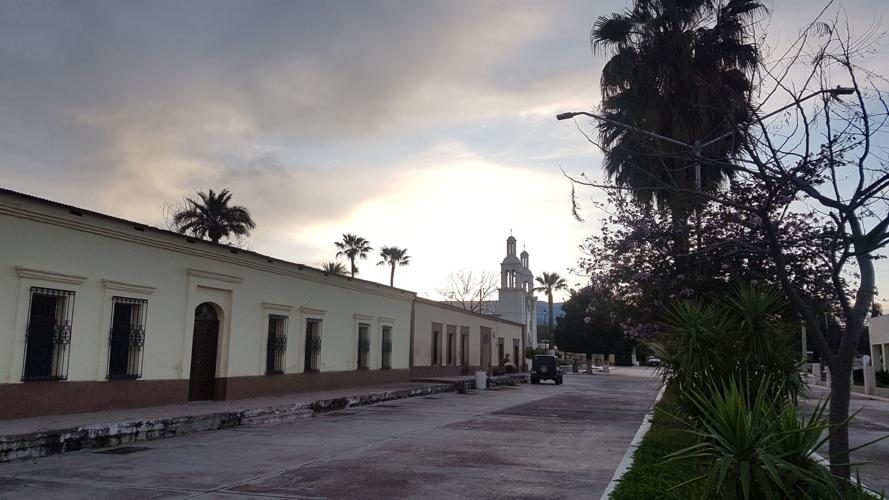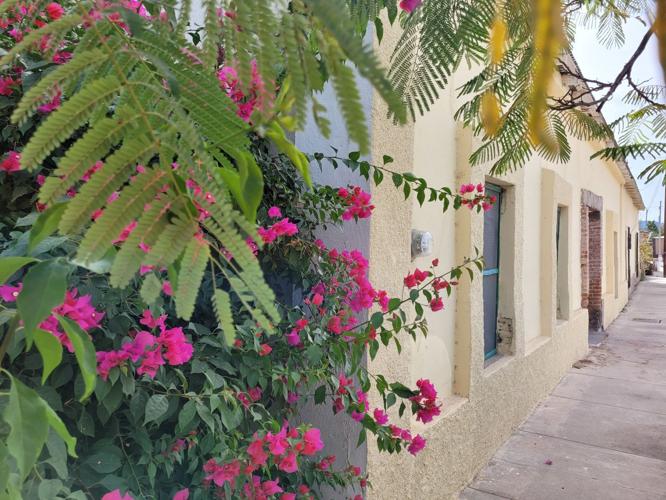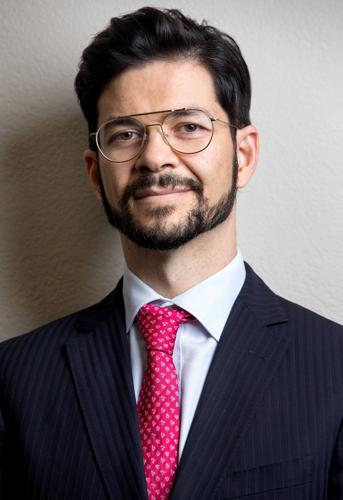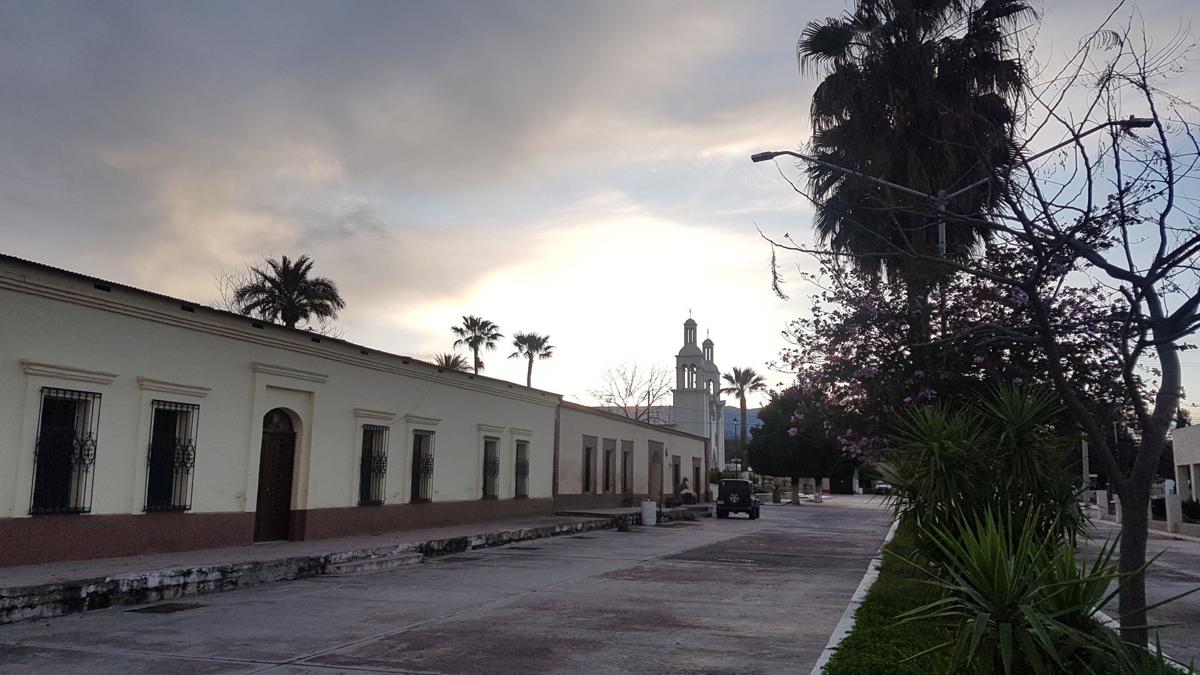ENGLISH VERSION BELOW
Los que hemos vivido fuera del lugar en que nacimos conocemos a la perfección un sentimiento que se convierte en forma de vida: la nostalgia. Una melancolía por el pasado que no se quita del todo, que se administra, pero nunca desaparece. Ese extrañar lo que fuimos, los lugares que frecuentábamos, las personas con quienes convivíamos.
Este sentimiento para nada implica que no seamos felices con nuestro presente. Lo que el día de hoy nos da es, muy probablemente, lo que hemos buscado, lo que nos completa y nos realiza. Disfrutamos lo que tenemos pero seguimos añorando lo que tuvimos: otras épocas felices que sólo quedan en nuestra memoria y que son capaces de arrancarnos una sonrisa espontánea con sólo recordarlas.
Mi nostalgia más arraigada es la niñez feliz que viví en Huásabas, ese pueblo hermoso de la sierra de Sonora, en la que tuve todo lo que podía pedir. Es decir, todo lo que realmente necesitaba. Recuerdo especialmente enternecido a mi familia, mis profesores, mis compañeros de juegos, la biblioteca pública, caminar por los callejones para ir a nadar al río con mis hermanos.
Son, sobre todo, recuerdos sensoriales. El aroma a tierra mojada, el olor a ciertas hierbas que solo se podían percibir al atardecer. La comida, sobre todo la comida, y la sensación de hogar, de plenitud, que te causaba respirar un ambiente que olía a frijoles cocinándose, a chile verde tatemándose, a tortillas de harina tostándose en el comal. O una rebanada de sandía que refrescaba los rigores del verano, o las naranjas con que se entretenían las frías mañanas del invierno bajo el lánguido sol.

Rafael Barceló Durazo
Para los que hemos migrado de un país a otro, esa sensación es todavía más intensa. Estamos en un nuevo lugar por decisión propia; a veces, luego de mucho luchar para lograr llegar ahí. Sin embargo, una parte de nosotros quisiera estar en el lugar que antes dejamos, con la gente que ya no podemos ver a diario. Respirar esos aromas conocidos y probar esos sabores que, como en la escena del acérrimo crítico de restaurantes en la película infantil Ratatouille, te conectan directamente a tus momentos más felices y te endulzan el carácter.
Al mismo tiempo, la nostalgia es una trampa de nuestra mente, que va hilando selectivamente recuerdos. Lo que añoramos ya no existe, tal vez nunca existió exactamente como lo recordamos, pero, sobre todo, ya no puede volver a existir. El pasado es un lugar para visitar rapidito con la mente, pero no sirve para vivir en él. Esa es la paradoja de la nostalgia: extrañar algo que por más que queramos no vamos a revivir. Es, como otros sentimientos, completamente irracional.
Ir acumulando nostalgias es aún peor, o mejor, si lo pensamos bien. Cada vez que me mudé de ciudad (y ya he vivido en ocho diferentes, en cinco países) me descubrí nostálgico ya no sólo de una vida pasada, sino de muchas vidas pasadas. En cada una extrañaba la inmediata anterior, pero todas las demás también. De cada una de ellas recuerdo mis restaurantes favoritos, mis parques preferidos, mis caminatas de rutina. Pero, más que todo eso, extraño a mis personas favoritas.
Las personas que migran realizan, hasta cierto punto, un acto heroico. Dejar atrás una vida para recrear otra requiere de mucho valor, de mucha constancia. De aguante, paciencia y resistencia. La adaptabilidad es un proceso que se logra con desprendimiento y el desapego causa sufrimiento.
La nostalgia puede ser también, sin embargo, una motivación: recordar la belleza de nuestro pasado para imaginarnos la belleza del futuro. Nos habla de quiénes somos, nos recuerda cómo nos criamos y todo lo que en otro momento aprendimos y vivimos. Así, el presente cobra más sentido y nos hace valorar lo que más queremos, para construir ahora los momentos que serán nuestros recuerdos nostálgicos en el futuro.
ENGLISH VERSION

Huásabas, Sonora.
The permanent nostalgia
Those who have lived some place different from where we were born are familiar with a feeling that becomes a way of life: nostalgia. A form of longing for the past that lingers, that you can manage but it never disappears. Missing what we used to be, places that visited, people we spent time with.
That particular emotion does not mean we are not happy with our present. What we have nowadays is, probably, what we have looked for, and completes us and satisfies us. We enjoy what we have but we still miss what we had: other happy times that stick in our memories and are great enough to spark a spontaneous smile for just remembering them.
My most unwavering nostalgia is my sweet childhood spent in Huásabas, a quaint and pretty town in the mountains of Sonora, Mexico. There I had all that I could have asked for. I mean all that I really needed. I remember especially my family, my teachers, my classmates during the school break, the public library, walking through the alleyways to go to the river to swim with my siblings.
They are, above all, sensorial memories. The smell of damp earth during the occasional rains, or the aroma of certain herbs perceptible only around sunset time. The food, especially the food, and the heartwarming sensation of being home, of plentitude, caused by breathing the smell of a pot of beans, roasted chile verde, and flour tortillas toasted over the stove’s hotplate. Or a watermelon slice refreshing the harshness of summertime, or the oranges eaten under the feeble sun’s rays of the winter mornings.
For those of us who have migrated from a country to another, that feeling is even more intense. We are in a new place because we decided so, sometimes actually after struggling for a while to make it possible. Nevertheless, a part of us still wants to go back to the place we have left, with the people that we cannot see on a daily basis. To sense the familiar smells and to taste flavors like those in the scene of the movie Ratatouille, when the staunch restaurant critic melts at connecting through food directly with his happiest moments in childhood.
At the same time, nostalgia is a trap of our mind, that spins selectively some memories. What we long for doesn’t exist anymore, perhaps never existed precisely how we recall it and, above all, it won’t be back to existence. Past is a place to visit briefly inside our minds, but it is useless to inhabit. That is the paradox of feeling nostalgic: missing something that for much we want to have it again, we will not be able to. Like other feelings, it is completely irrational.
Accumulating nostalgias is even worse (or even better if we think it twice). Every time I moved from one city to another (it’s been eight in five countries) I found myself nostalgic not just about my recent past, but about many seasons before that. Remembering my favorite restaurants, or beloved parks, my routine walks. And, mainly, missing my favorite people.
Those who migrate perform, so to say, a heroic act. Leaving behind your life to rebuild another one requires plenty of strength, lots of determination. Holding up, patience and resilience. Adaptability is a process that can only be achieved with doses of largesse, but letting go causes pain and strong nostalgic sentiments.
On the other hand, nostalgia can become a form of motivation: remembering the beauty of our past to imagine the beauty of our future. It can also tell us a lot about ourselves, about our upbringing and how we have matured, and learned, and lived. This way the present makes more sense and helps us to appreciate what we love the most, to create new moments that will be the nostalgic memories of the future.
Ha tomado siglos llegar a donde estamos: mujeres que abrieron camino, sociedades que han evolucionado, hombres que las han apoyado -y muchos más que se han opuesto a ellas-, movimientos que les han dado visibilidad... Pero aún quedan mentalidades por cambiar y paradigmas por romper.








